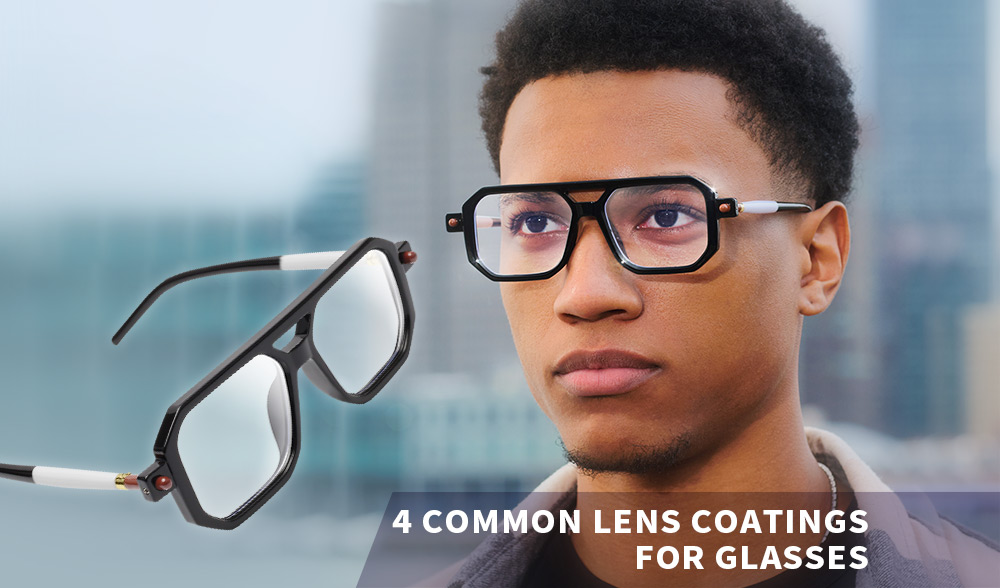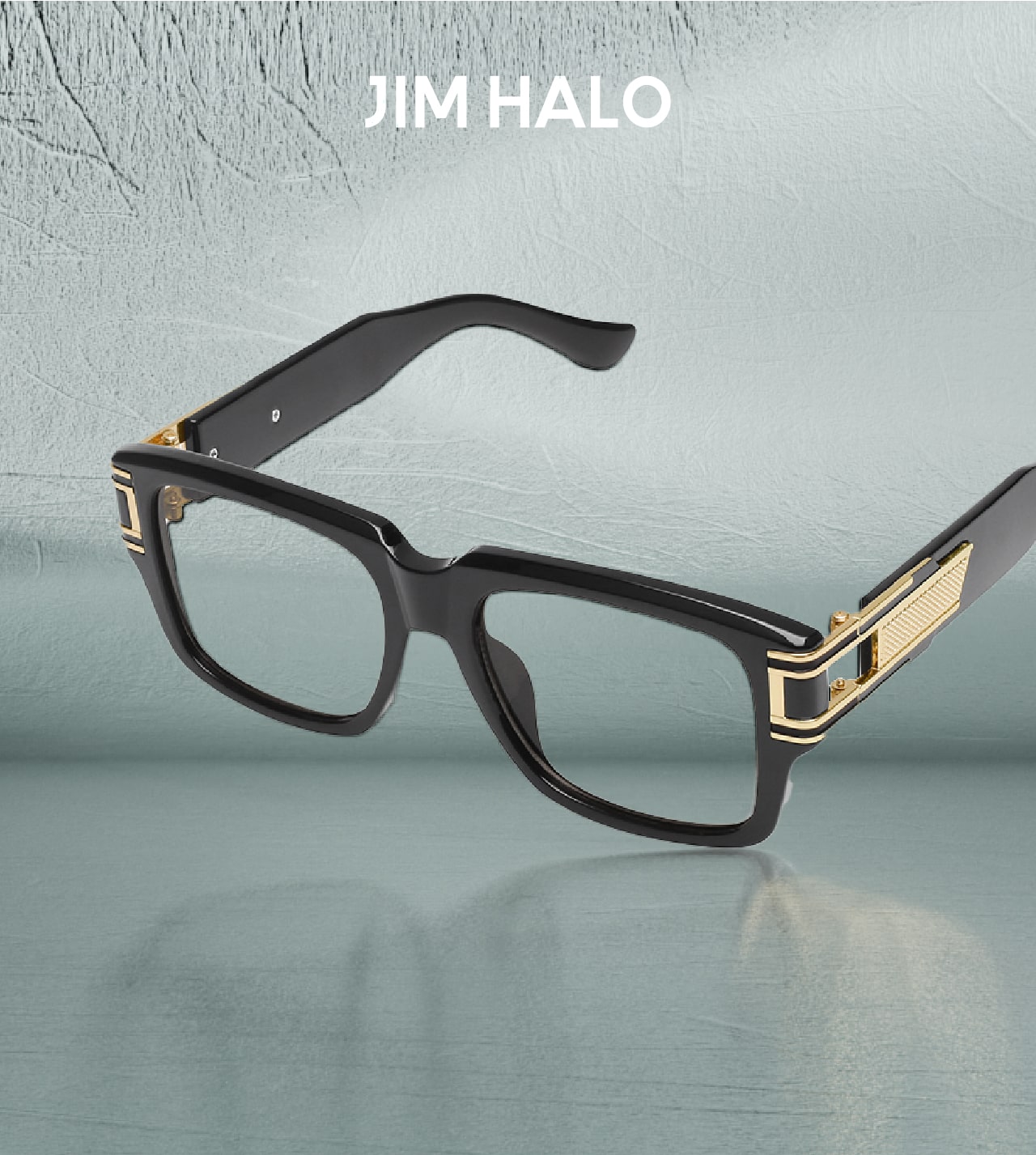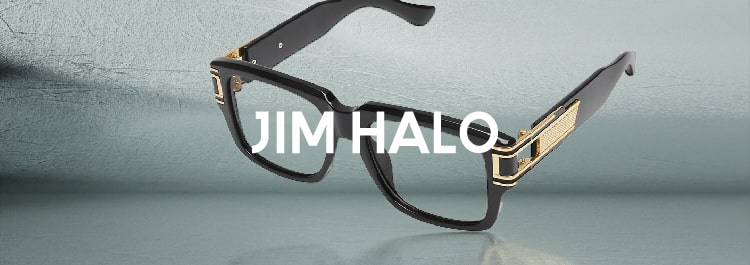This guide will explore:
-
Introduction
-
Coating 1: Anti-reflective Coating
-
Coating 2: Scratch-resistant Coating
-
Coating 3: Ultraviolet (UV) Protection Coating
-
Coating 4: Blue Light Blocking Coating
-
Photochromic Lenses: Adapting to Light Conditions
-
Choosing the Right Coatings: Factors to Consider
-
Conclusion
Text Leading
This article explores four common lens coatings for glasses that improve visual experience, extend lens life, and protect your eyes. These coatings include anti-reflective, scratch-resistant, UV protection, and blue light blocking, each offering unique benefits. Additionally, photochromic lenses and factors to consider when choosing the right coating are discussed. Select the best for your glasses, ensuring optimal eye health and comfort.
-
Introduction
In today’s fast-paced world, people rely heavily on their vision to navigate daily life. Glasses, being the most common solution to refractive errors, should provide optimal vision and eye protection. This article will discuss four common lens coatings for glasses, along with two additional topics to enhance your knowledge of the subject. These coatings can improve your visual experience, extend the life of your lenses, and safeguard your eyes from harmful external elements.
-
Anti-reflective Coating
Anti-reflective (AR) coating is a thin, transparent layer applied to the surface of the lens. It reduces glare and reflections, allowing more light to pass through the lens and reach your eyes. This results in sharper vision and reduced eye strain, especially during nighttime driving or prolonged computer use.
Benefits of AR coatings include:
-
Improved visual comfort
-
Enhanced cosmetic appearance
-
Reduced glare, making it easier to see in high-glare situations
-
Clearer vision at night
-
Minimized eye strain during extended screen time
-
Scratch-resistant Coating
Scratch-resistant coatings are designed to protect the lens surface from scratches and minor abrasions, prolonging the life of your glasses. While no lens material is entirely scratch-proof, this coating makes the lens more resistant to everyday wear and tear.
Advantages of scratch-resistant coating are:
-
Enhanced durability of lenses
-
Better clarity and visual quality
-
Cost-effective, as it reduces the need for frequent lens replacements
-
Maintains a clear and sharp view through the lens
-
Ultraviolet (UV) Protection Coating
Prolonged exposure to ultraviolet radiation can harm your eyes and increase the risk of developing conditions like cataracts, macular degeneration, and corneal sunburn. UV protection coatings are designed to block harmful UV rays, shielding your eyes from potential damage.
Key benefits of UV protection coating include:
-
Protection from UVA and UVB radiation
-
Reduced risk of age-related eye diseases
-
Prevention of corneal sunburn and other sun-related eye issues
-
Ensuring proper eye care for outdoor activities
-
Blue Light Blocking Coating
Blue light, emitted by digital devices like smartphones, computers, and LED screens, can contribute to digital eye strain and disrupt sleep patterns. Blue light blocking coatings help filter out this harmful light, alleviating eye strain and promoting better sleep.
Advantages of blue light blocking coating are:
-
Reduced digital eye strain and fatigue
-
Improved sleep quality by regulating melatonin production
-
Prevention of potential long-term damage to retinal cells
-
Enhanced visual comfort during screen time
-
Photochromic Lenses: Adapting to Light Conditions
While not a coating, photochromic lenses are worth mentioning as they offer additional convenience to eyeglass wearers. These lenses darken automatically when exposed to sunlight and return to their clear state indoors. They provide continuous UV protection and reduce glare, ensuring comfortable vision in varying light conditions.
-
Choosing the Right Coating: Factors to Consider
Selecting the appropriate lens coatings depends on your lifestyle, personal preferences, and specific visual requirements. Consider the following factors when choosing it:
-
Occupation: Do you work outdoors, in a digital environment, or a combination of both?
-
Hobbies: Do your hobbies involve extended screen time, outdoor activities, or require sharp vision?
-
Budget: Balance your needs with your budget, as it may add to the overall cost of your glasses.
-
Previous experiences: If you’ve had issues with glare, scratches, or eye strain in the past, consider coatings that address these problems.
Conclusion
Lens coatings play a significant role in enhancing visual comfort, protecting your eyes, and prolonging the life of your glasses. Anti-reflective, scratch-resistant, UV protection, and blue light blocking coatings offer numerous benefits, tailored to different needs and lifestyles. Photochromic lenses provide an added level of convenience for those who prefer adaptive eyewear.
When choosing the right coating, consider factors such as occupation, hobbies, budget, and previous experiences to make an informed decision. Consult with your optometrist or optician to better understand your specific visual requirements and find the best lens coatings for your glasses. Remember, investing in the appropriate lens coatings can make all the difference in maintaining optimal eye health and comfort.








